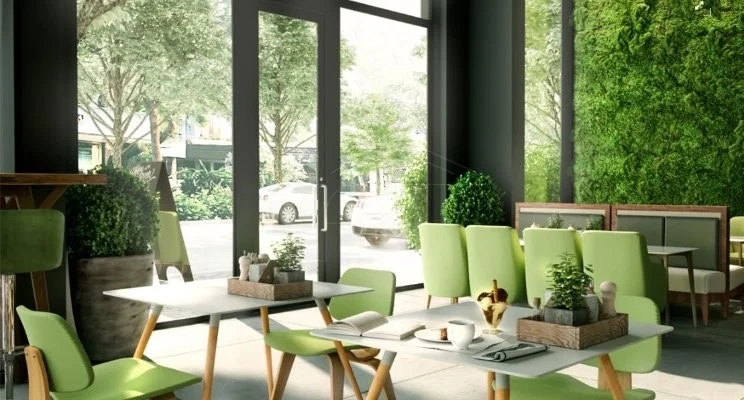The environmental effects of many other businesses have come to light in recent years, and the restaurant business is no exception. Restaurant operators are increasingly looking for sustainable and environmentally friendly ways to equip their spaces as customers grow more ecologically concerned. This strategy benefits the environment and appeals to a market of customers that place a high value on sustainability. This article examines several eco-friendly and sustainable furniture solutions for restaurants, emphasising design concepts, materials, and the advantages of choosing more sustainably.
ENVIRONMENTAL IMPACT
Deforestation, chemical treatments, and large carbon emissions are just a few of the environmentally hazardous practices used in traditional furniture production. Conversely, sustainable furniture is produced using materials and methods that reduce its adverse environmental effects. By using eco-friendly furnishings, restaurants may lessen their impact on trash, pollution, and deforestation.
CUSTOMER APPEAL
Consumers today are more aware of the environment than ever. A significant number of patrons deliberately search for dining venues that share their ideals, such as sustainability. Restaurants that implement eco-friendly furnishings may enhance their brand image and customer loyalty by attracting and retaining environmentally conscious customers.
ECONOMIC BENEFITS
Even though environmentally friendly restaurant furniture may cost more upfront, it usually becomes more economical in the long term. Superior, ethically crafted furniture usually has a longer lifespan, so fewer replacements are required as often. Certain eco-friendly products and methods may also be eligible for tax breaks or reimbursements.’
RECYCLED AND RECLAIMED WOOD
Reclaimed and recycled wood is a common material for environmentally friendly restaurant furnishings. This product gives wood from furniture, shipping pallets, and abandoned structures a new lease on life while lowering the demand for virgin timber. Because of its distinctive appearance and rustic charm, reclaimed wood is a popular choice for creating a cosy and welcoming dining space.
BAMBOO
Another great ecological material for restaurant furniture is bamboo. Hardwood trees typically take decades to reach maturity, but this species develops quickly, reaching maturity in about three to five years. Additionally, it is very renewable, and bamboo requires very little fertiliser and pesticides.
RECYCLED PLASTIC
Old bottles and containers, among other post-consumer garbage, are used to make recycled plastic furniture. This material is perfect for both indoor and outdoor restaurant settings since it is not only extremely robust and resistant to weather and wear but also environmentally friendly.
METAL
Steel and aluminium recycled metal furniture is an additional environmentally friendly choice. Metals are environmentally favourable since they can be recycled indefinitely without losing their qualities. Furthermore, metal furniture is quite solid and resilient to hard use.
NATURAL FIBERS
Natural fibre furniture, including hemp, wicker, and rattan, is fashionable and sustainable. These substances have little effect on the environment and are biodegradable. They are perfect for giving eateries a laid-back, natural look.
MINIMALISM
The emphasis on practicality and simplicity in minimalist design generally leads to the use of fewer resources and less waste. By opting for minimalist furnishings, restaurants may lessen their environmental impact and achieve a clean, contemporary image.
MODULAR FURNITURE
Because of its flexibility and adaptability, modular furniture is easy to expand and reconfigure. This design idea not only increases the furniture’s lifespan but also lessens the need to buy new items when the restaurant’s demands or layout changes.
DURABILITY AND LONGEVITY
Purchasing sturdy, well-made furniture lowers the need for replacements, reducing waste and resource usage. Sustainable restaurant furniture must be made using materials and designs that endure harsh usage and wear and tear.
ENVIRONMENTAL BENEFITS
Restaurants may lessen their total environmental impact by using sustainable furnishings. By using eco-friendly products and production techniques, restaurants may reduce waste, save natural resources, and reduce their carbon footprint. This decreases pollution and preserves ecosystems.
